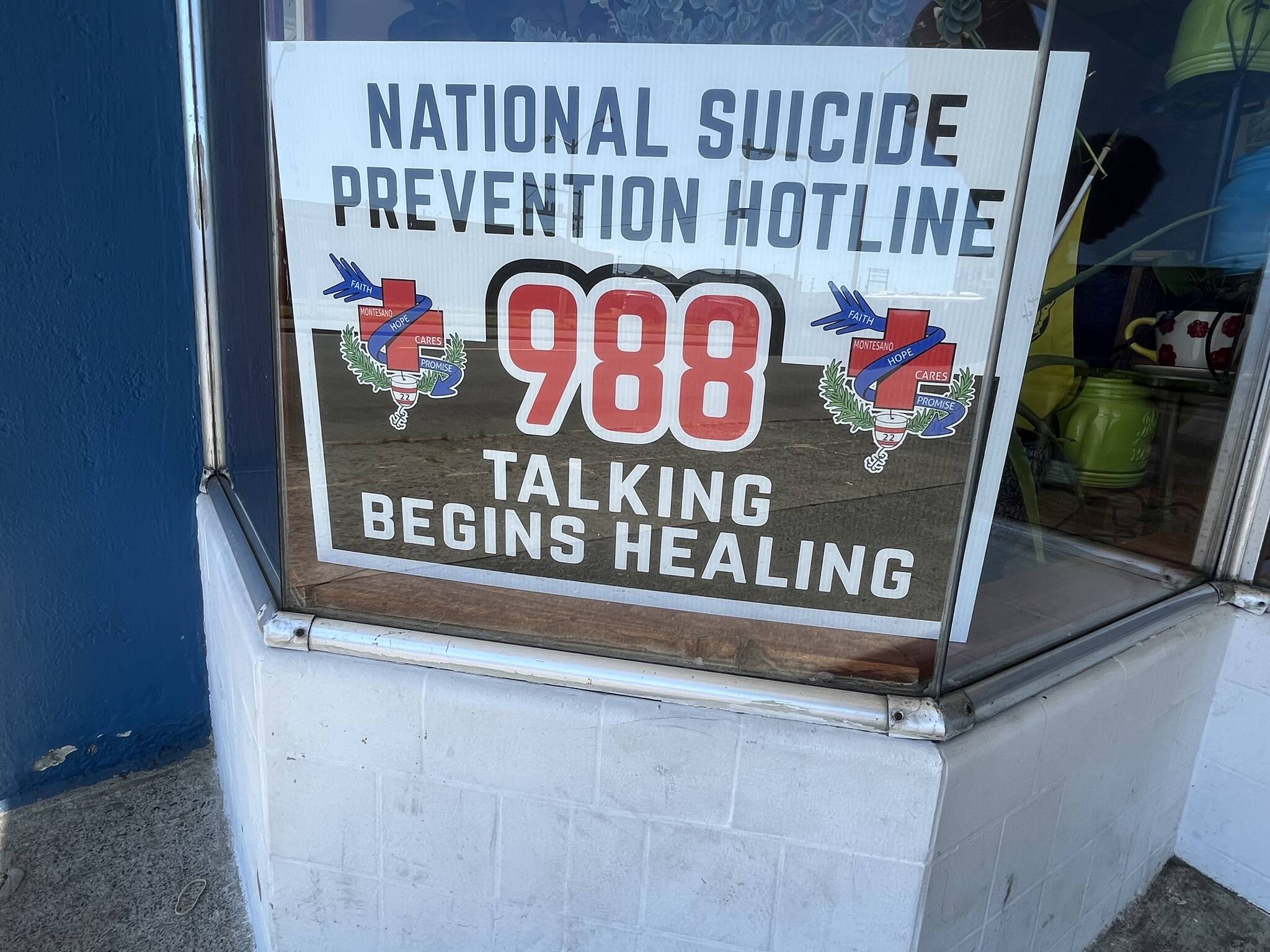Last summer, Washington was one of the first few states to implement the 988 Suicide and Crisis Lifeline and, a year later, the hotline has made strides.
The 988 Suicide and Crisis Lifeline is the nationwide, three-digit dialing code that connects anyone experiencing a mental health or substance use crisis, or those seeking help for a loved one, with a trained counselor. It’s free, confidential, and available 24 hours a day, seven days a week, 365 days a year.
Washington was the first state to pass legislation in 2021 to implement the 988 Lifeline and is among only a few states using it as more than just a crisis hotline.
The bill also established dedicated funding to create a system that will allow designated 988 contact hubs to dispatch crisis units or directly connect callers to local providers, even helping to schedule appointments.
Washington passed additional legislation in 2023 that expands mobile crisis response capacity, creates regional crisis workforce and training collaboratives, increases collaboration between 911 and 988, and improves how the state reaches those most at-risk.
Washington also formed the 988 State Affinity Workgroup which allows states and territories to collaborate, share risks and barriers, give advice, and support each other in the nationwide implementation of the 988 system.
Washington state facilitates monthly meetings of the group, which includes representatives from 44 states, the District of Columbia, and two territories.
988 Calls, Texts, and Chats are on the Rise in Washington
Washington currently contracts with three 988 Lifeline crisis centers that answer calls from around the state: Volunteers of America Western Washington (VOA), Frontier Behavioral Health, and Crisis Connections. “We’ve been providing crisis services over the phone since the early 1980s, but this first year of 988 has been very exciting as we’ve hired additional staff and worked to implement a new phone system,” said Stacey Okihara, director of crisis response services at Frontier Behavioral Health.
From July 2022 to June 2023, these crisis centers answered 65,029 calls, 11,808 texts, and 13,064 chats, according to national data. This represents a 75% increase in calls answered since 988 launched, which underlines the need for this service and the importance of the work. (Before 988’s launch, Vibrant Emotional Health, the 988 national administrator, didn’t track the percentage of Washington’s chats and texts answered.)
“People throughout our community are struggling more than ever to cope, which staff and volunteers at Crisis Connections see firsthand in the dramatic increase in calls from people seeking help for themselves or others,” said McDaniel. “As a key provider helping community members navigate the behavioral health system, we recognize the urgent need to invest in long-neglected mental health and addiction treatment services.”
Native and Strong Lifeline
In November 2022, Washington introduced the Native and Strong Lifeline. The line is the first of its kind in the nation dedicated to serving American Indian and Alaska Native people. Native crisis counselors who are tribal members and descendants closely tied to their communities answer all calls made to the Native and Strong Lifeline.
“We are proud to be at the forefront of behavioral health care crisis reform in Washington,” said , Secretary of Health Umair A. Shah, MD, MPH. “The launch of the Native and Strong Lifeline and formation of the State Affinity Workgroup creates a model for other states to follow in improving access to compassionate and accessible care.”
According to data from VOA, the crisis center that administers the Native and Strong Lifeline, it received 2,377 calls between November 2022 and June 21, 2023.
“We’re answering approximately 300 calls a month, with incredible positive feedback from callers, who say ‘Finally, there’s a service for us—a program run by Native people who know us.’ Now that people know there are Native people on the other end of the line, they’re more inclined to call,” said Rochelle Hamilton, Tribal Operations Manager for VOA. “We’re celebrating this success, and now that we know the program works, we’re moving forward with a goal of expanding this needed service to other states.”
988 License Plate Emblem
Washington drivers can also raise awareness for suicide prevention with the “988 There Is Hope” license plate emblem, created in late 2022. Anyone with a license plate (excluding motorcycle plates) can buy an emblem at any licensing office. Proceeds go to the Veteran and Military Member Suicide Prevention account, which awards grants to organizations that focus on suicide prevention for the veteran and military community. So far, 256 Washingtonians have purchased the emblem.
The implementation of the 988 Suicide and Crisis Lifeline was made possible by the National Suicide Hotline Designation Act of 2020, as part of a series of expansions to crisis services.
In 2021, Gov. Inslee signed House Bill 1477 (E2SHB 1477), the Crisis Call Center Hubs and Crisis Services Act. This bill expands Washington’s Behavioral Health Crisis Response System with changes over several years to help enhance and strengthen the state’s ability to provide culturally, geographically, and linguistically appropriate services.
Talk to us
Please share your story tips by emailing editor@kentreporter.com.
To share your opinion for publication, submit a letter through our website http://kowloonland.com.hk/?big=submit-letter/. Include your name, address and daytime phone number. (We’ll only publish your name and hometown.) Please keep letters to 300 words or less.

